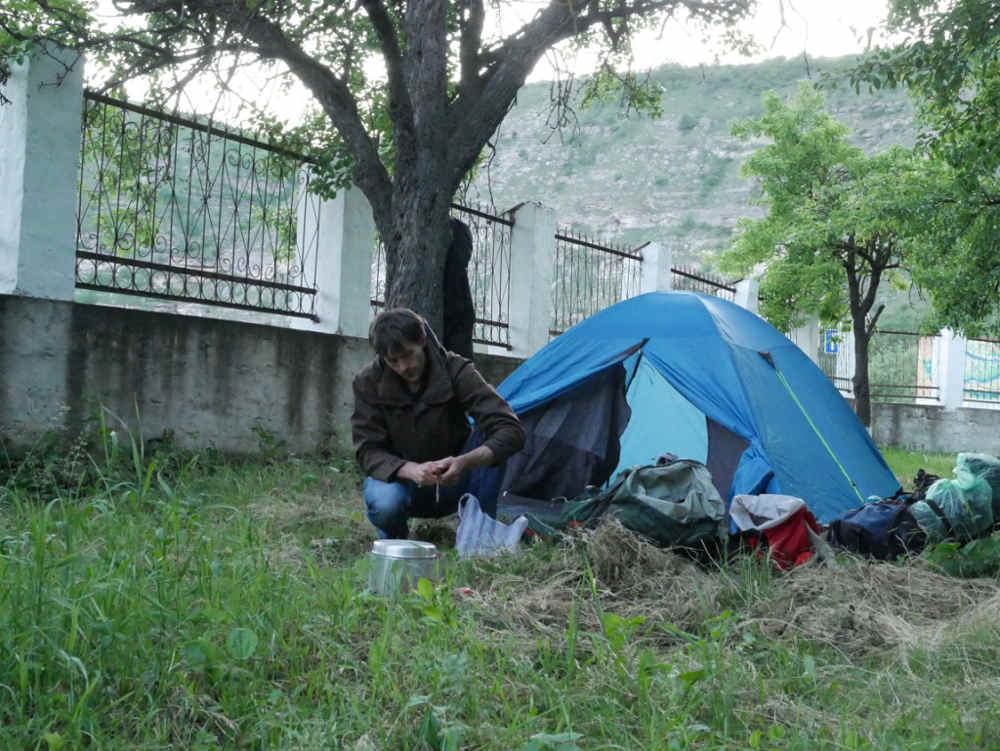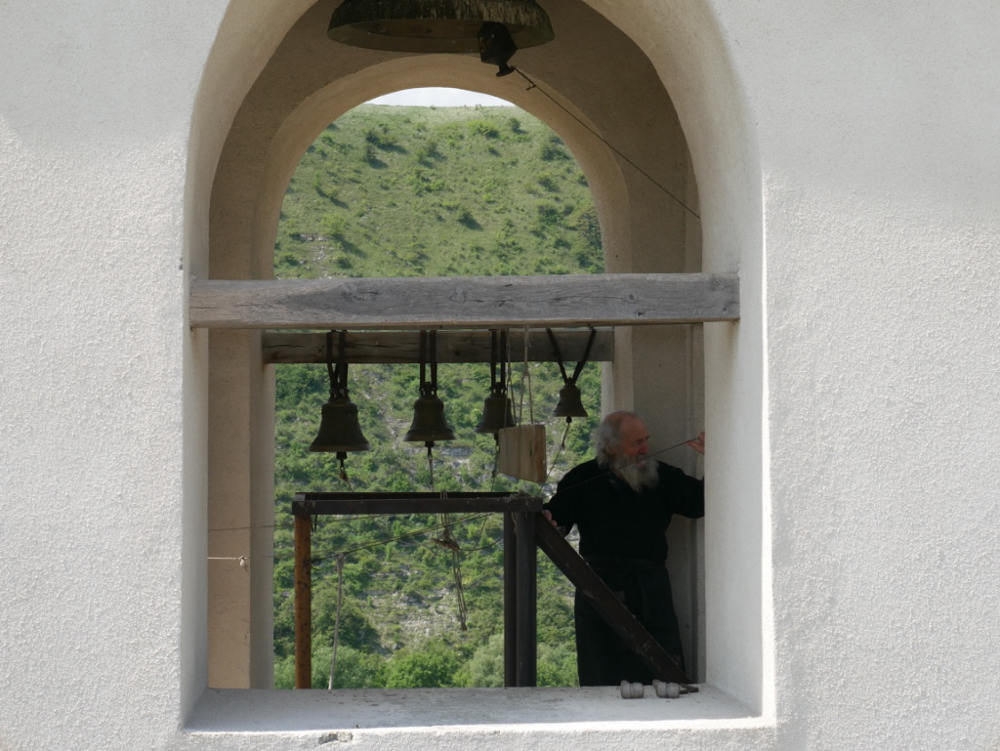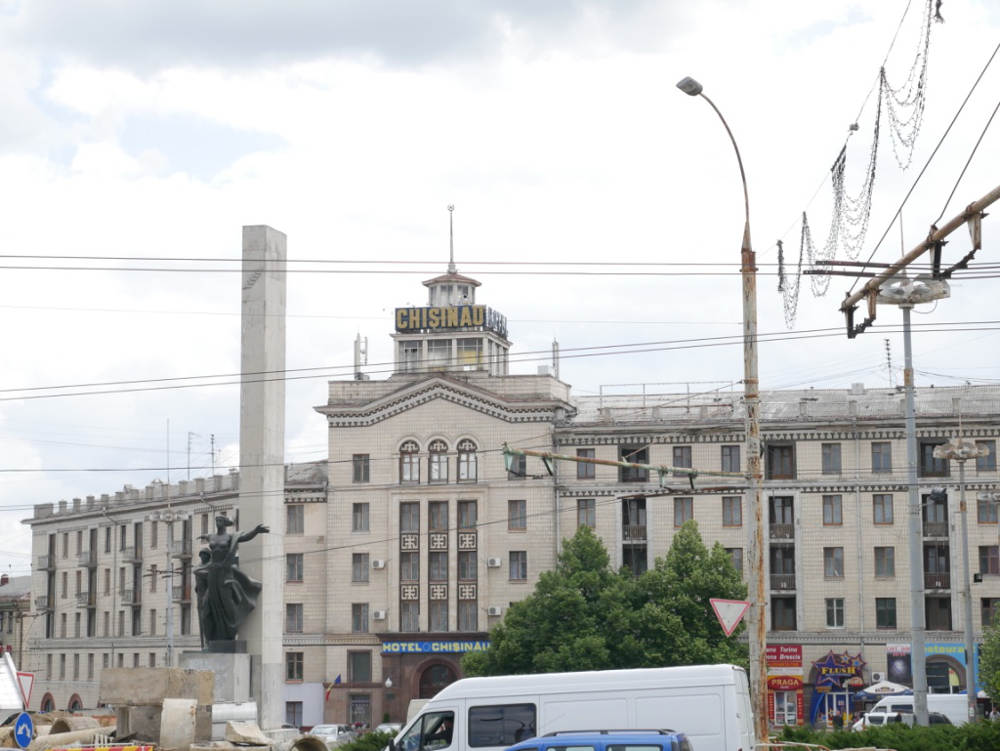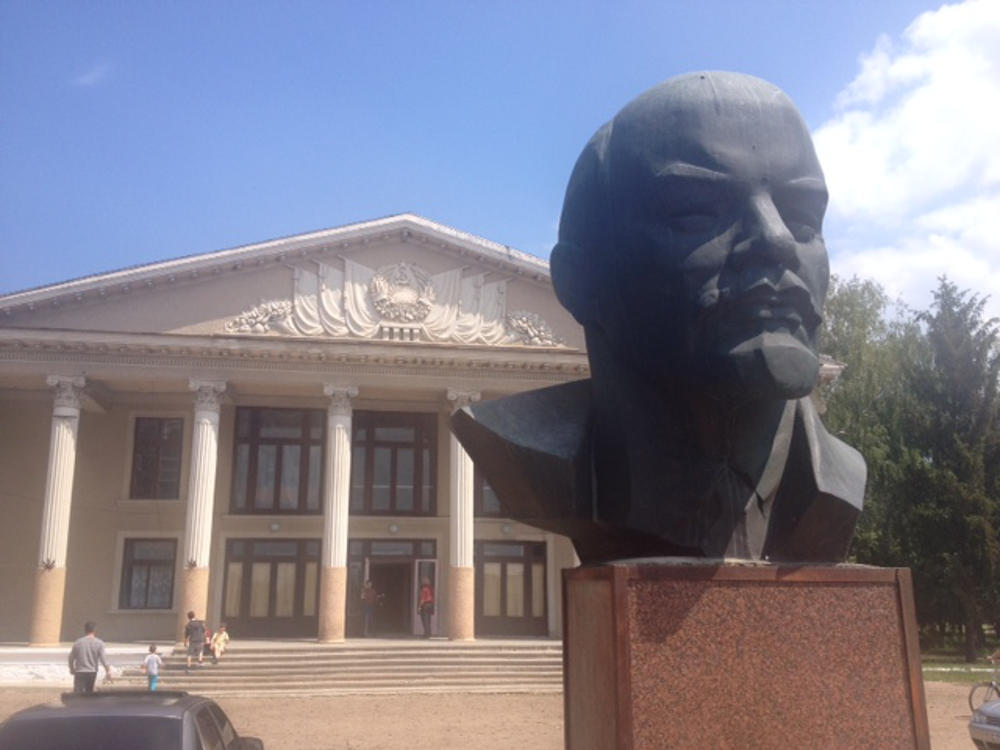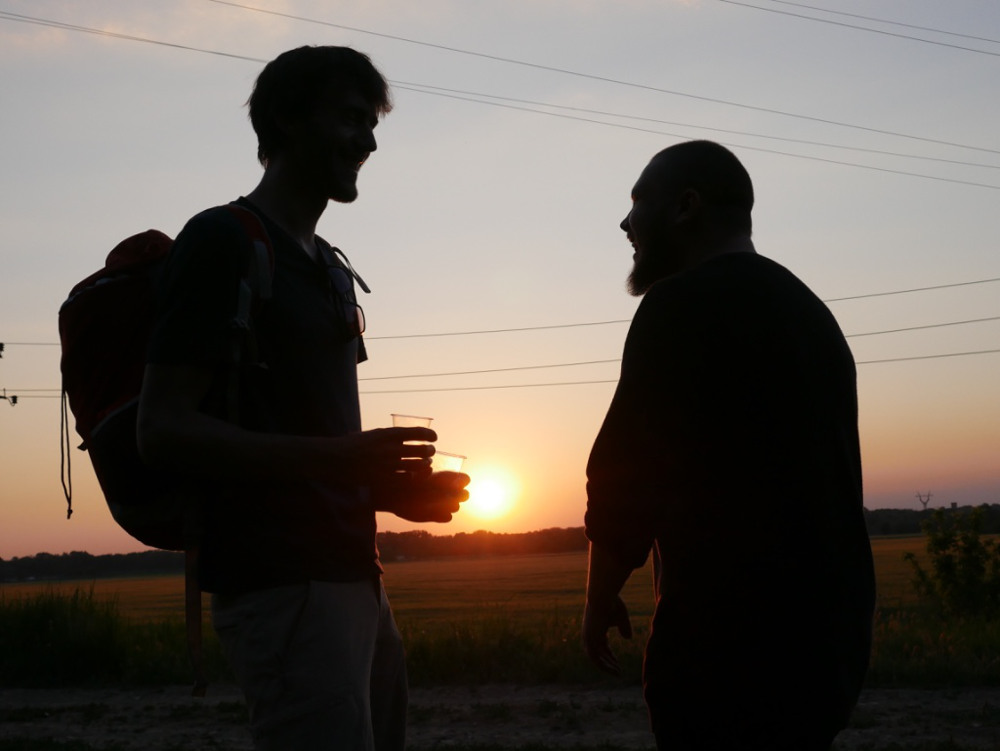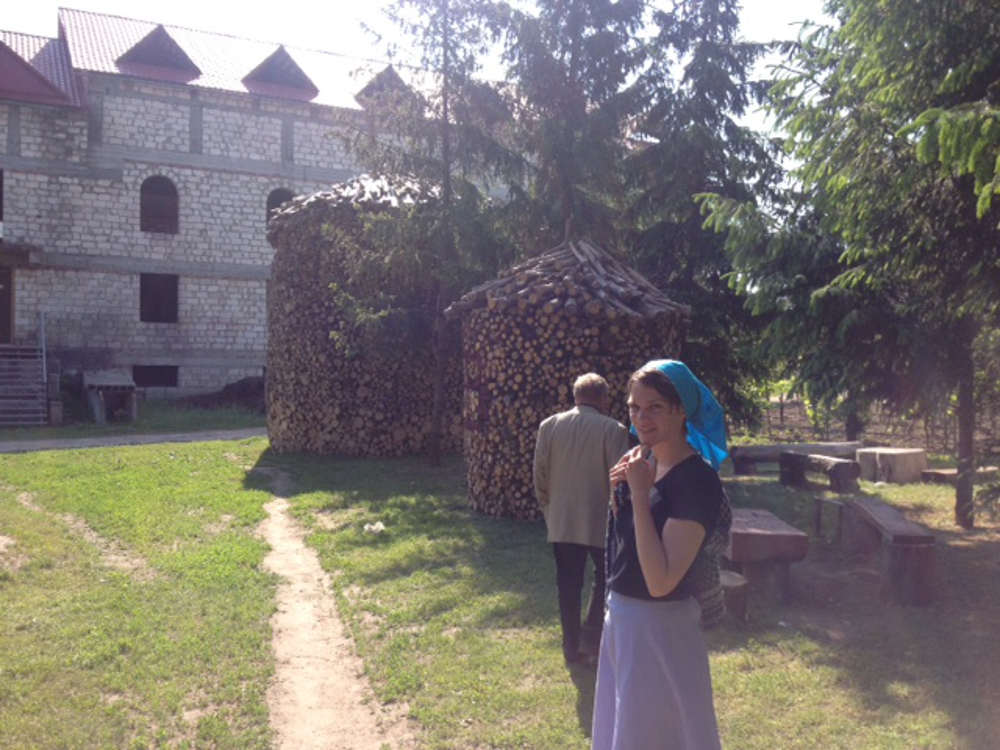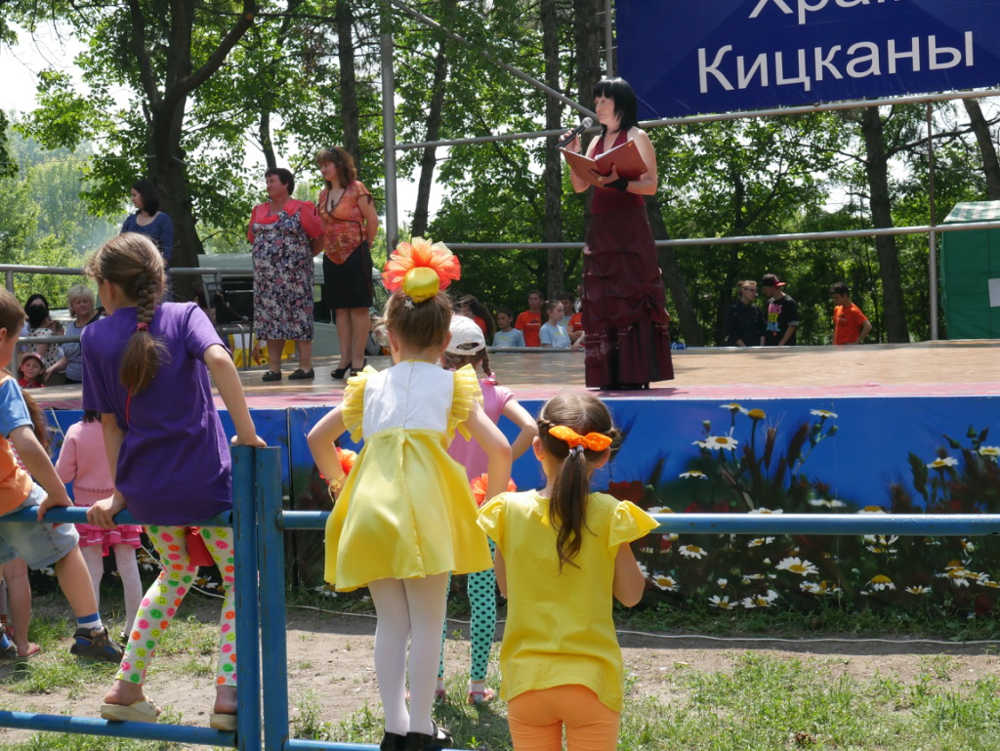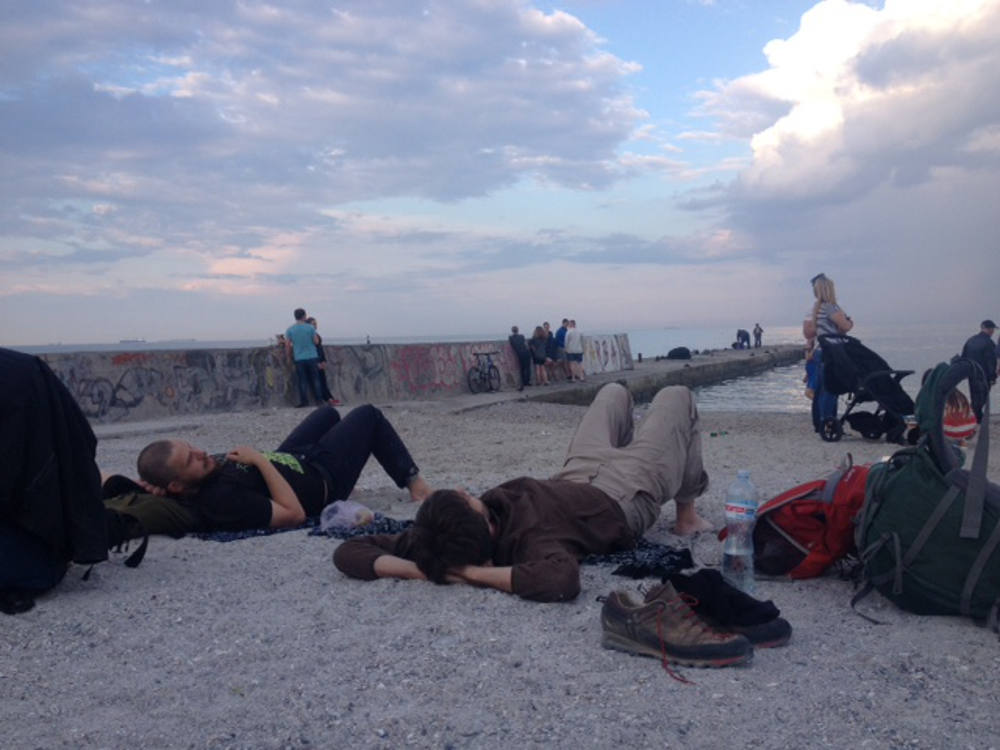May 25, 2016 Odessa, Ukraine
In Ukraine, we have learned a lot:
Lesson 1: Russia has a plan
Lesson 2: A cucumber is not a cobra
Lesson 3: Odessa is beautiful
Before we move on to Lesson 1, let us quickly recap. From Dracula’s castle we walked up to the road again and we almost started to feel bad. We had just left so much comfort behind and then this: the first car that passed stopped with a waving German flag right in front of us and the friendly Nelu, a young Moldovan with surprisingly good German skills, drove us straight into Moldova, our desired destination. Nelu operated his own transport service between southern Germany and Moldova. Apart from the two seats in his minibus he even invited us for lunch and took us all the way to Orheil. The second hand market between Germany and Moldova is booming. What is no longer needed in Germany lands in one of the many minibuses. Even many of the cars around here are all second hand cars from Germany.
Due to the long wait at the border crossing between Romania and Moldova we arrived late at the junction for Orheil vechi (old Orheil, Nelu recommended us to visit its monastery), where a friendly Russian-speaking Moldovan picked us up and, despite our language difficulties, seemed to be very amused with our idea to try and camp out there. He even dropped us off in front of a sign, which read “Camping”, although there was none in sight. Luckily, the guard of a neighboring hotel(?) allowed us to camp in their garden, as long as we packed up before 8 am the next morning to not scare the other tourists, which he explained to us in Russian with the help of drawings in the sand with a little stick. It meant we could finally set up our 3.1 kg heavy tent, which had been exclusively stored in Jeroen’s backpack since the beginning of our journey, but not without some bickering. Jeroen’s way of setting up the tent roughly consists of putting two poles in the ground and throwing a tarp over it, whereas Linda happily anchors away every little stake firmly in the ground. It probably did not help that we were hungry while doing it. But we worked it out and not soon after, what should have been pasta with tomato sauce, was slowly simmering on our petrol cooker. While our mood improved, the pasta was becoming squishy. Very, very squishy.
Fresh and rested the next morning we explored Orheil vechi and shot a small film, which you can find in the film section of our blog. We were enthusiastically chasing after bees, butterflies and grazing goats with our camera, when we suddenly heard the sound of bells. When we walked up to the monk in the bell tower, he invited us to visit an ancient monastery inside a cave.
From Orheil vechi we decided to spend a few days in a hostel in Chisinau and relax. In addition to the Soviet architecture and beautiful parks, we discovered Moldova’s excellent wine in Chisinau! Almost the entire country is riddled with vineyards and in Chisinau we indulged in its many different varieties. Despite the extremely low prices, it caused our stay in Moldova (the poorest country we visited so far), to be the most expensive part of our journey..
From Chisinau we traveled to the small village Romanovca (before known as Rohrbach), where Linda’s grandfather lived as a child. The people in the village were very confused about our visit and very helpful in their efforts to help us leave. Thus a lady approached us and asked: “niet Ruski, niet Moldawi?” Arguably, this would mean as much as “what the hell are you doing here?”. We then tried to persuade her to draw something in our booklet, to which she wrote something in Russian, which we of course did not understand. Later at the hostel we got the friendly Olga to translate it for us. It read: “You need a translator”. Even without any translators we managed to find the one small village shop, which also functions as the only bar, where we were treated on free water and ice cream. We must have looked very helpless, as more and more Romanovcanian women were brought in to help arrange a taxi out of the village for us. While waiting for the taxi, the nice Svetlana invited us into her home and treated us on strawberries, pastries and Palinka. With the help of our own drawings we were able to explain why we visited Romanovca. Svetlana’s face lit up and she immediately offered us to spend the night and visit one of the last German houses in Romanovca. Unfortunately the taxi was already on its way and we did not want all previous efforts from the friendly ladies in the shop to go to waste, so after a quick look at the German house we were on our way back to Chisinau again.
Our next adventure was to take place in a country that does not exist. A country in which the flags still fly with a sickle and hammer. A country in which the red star still shines bright. We were on our way to Transnistria. Already at the border it felt as if we went 30 years back in time into the Soviet Union, reminding us of a 70s Russian propaganda film. Contrary to our initial fears, we met a very friendly Transnistrian border patrol officer. Soon after, we found ourselves in the midst of a crowded market and a maze of Cyrillic letters in Tiraspol, with a Russian voice echoing through the loudspeaker.. We were glad that we could decipher the Cyrillic alphabet to find our way past the many Lenin monuments on to the bridge over the Nistra to Victor in Kitskani, our couchsurfing address. After some skeptical looks toward us and our big backpacks of many passersby, we were picked up by Lydia who dropped us off at the gates of Victor’s place. Apparently, everyone in the village knows Victor as the one person to invite international visitors to his house.
Victor was busy preparing rabbit food and after showing us his chaotic (to put it mildly) house, he gave us some matches and took us down the rabbit hole that is his underlying subterranean labyrinth of corridors and pass-ways. We felt like Alice in Wonderland crawling into his underground rabbit-house made from clay walls and glass bottles, allowing a dim light to project bright colors through. Victor’s current plan (he has many) is to breed rabbits in order to secure a small income. Although his big dream is to turn his house into a hostel. Victor’s many ideas and his enthusiasm are wonderful and if he can create some order in his chaos at home, it could turn into something beautiful. But first we had to go to the immigration services. Those who want to stay longer than 24 hours in Transnistria must be registered by the host in person, so the three of us were now on our way back again to Tiraspol. For a 57 year old Transnistrian Victor showed surprisingly good English skills, which is a great exception in this small country that does not really exist, and revealed to us something that brings us back to Lesson 1: “Russia has a plan”. Transnistria is positioned in an extremely hard predicament. Legal export is almost completely blocked, while import is only limited possible, mainly via Ukraine. Everything that does actually function in Transnistria, not counting corruption and mafia, only works because of big brother Russia. According to Victor many Transnistrians want to reunite with Russia. The only small problem in between is the Ukraine. According to Victor and our later hosts in Odessa, Russia had already planned to divide up the Ukrainian territory. The southern and eastern part of Ukraine would be annexed to connect Transnistria with Russia. The area north of Moldova and Romania could then belong to Romania and the rest could simply be added to Poland or remain independent. Badabing, problem solved.
At least for Transnistrians, as they would have little to no chance in the EU due to language difficulties. Not that they would want to join, as their television channels seem to be portraying a rather negative image of the EU: flooded by refugees and deprived of values. All the while showing regular Russian army muscle-flexing on tv, as we observed from Alex’ (we met him through Couchsurfing as well) family kitchen, while enjoying his mother’s soljanka. Alex showed us around Tiraspol and invited us to his home, to the initial dismay of his parents. We were of course strangers and foreigners are usually no good. After a quick peek out the window they invited us in and were happily reassured when we uttered our dutifully rehearsed Russian words “hello”, “thank you” and later “goodbye”. We spent a wonderful evening drinking Moldavian wine from the tap along the Nistra river, next to a neon-lit disco bridge with a loud party boat occasionally passing by.
But let us first return to Victor and our registration, which was a surprisingly quick process despite the animosity of the security officers. Next, we headed to the “Sheriff” supermarket to get groceries. Apart from supermarkets, Sheriff also has gas stations, a mobile phone company, even a stadium. Victor told us the founder is a former policeman who made a lot of money with smuggling, which he later turned into investment money. We decided to try and make borscht, to which Victor insisted on inviting his neighbor Nadia who helped us make the best borsch we ever tasted. We had a wonderful dinner in Victor’s beautiful wild garden with an excellent Moldovan wine, philosophizing about ideas how to turn Victor’s place into his desired hostel.
A highlight of our stay in Transnistria was the Kitskani’s St. Nikolas village fest. Victor took us to a ceremony in the Orthodox Monastery, but not before Linda dressed up as a Babushka with headscarf and skirt. It was a true theatre spectacle, with the women on the left and the men on the right, simultaneously bowing and crossing to the harmonious chants of the monks. The priests, dressed in bright colored robes with magnificent beards, paraded around and kissed a large golden bible in various formations entering from two doors positioned near the main stage. After the ceremony the abbot came storming out of the church with great delight, fiercely flinging holy water toward his followers. We were smacked in the face with a big load of water, as did everyone else who came within reach.
In the park the village festival then began, where the secular and the Christian gathered to watch performances by the youth and the elderly. Strangest was the honoring of the mothers of Kitskani, with a group of about 5 young mothers successively pushing their bundle of joy in front of the stage in a circle and being awarded with a homemade medal in the form of a stroller by the mayor. Later the elderly people who were still working after retirement age were being honored. All in all, the village festival was a great success and we even returned late at night with Victor and Alex, who had ventured into the village to meet up with us again. A diskoteka with Russian dance music was taking place in front of the community center, with an oversized bust from Lenin, fortunately, looking in the opposite direction. With the neon lights coming down on the party crowd and the back of Lenin’s head, we celebrated our last night in Transnistria.
Alex decided to accompany us the next day on our onward journey to Odessa. Perhaps he wanted to help us cross the infamous Transnistrian- Ukrainian border, or perhaps he was just looking to escape his work as a freelance programmer in Tiraspol a little while longer. We all got across without any problems and after a long march with our luggage through Odessa, we reveled in the beauty of the black sea from the beach with a well deserved beer in our hand.
But before we move on to this lesson number 3, we must first touch on lesson number 2: “A Cobra is not a cucumber.” Around 9 pm we made it to our Couchsurfing host Yaroslav, yoga teacher and mixed martial arts professional. In addition to a very nice evening with wine, strawberries, cherries and chocolate, Jeroen received a free yoga class as well, after complaining a bit too loud about a slight stiffness in his back. One of the principles of yoga, Yaroslav taught us the night before, is that one should not criticize. How that was to fit with the yoga class that followed, will forever remain a mystery. It all started with a harmless “sun greeting” routine. When Jeroen however leaned down and, due to his inability to touch the ground with the palms of his hands, Jeroen received his first complaint from Yaroslav and the fun (for Linda) began! Ity looked more like a military drill-instruction than a relaxing yoga session. Jeroen desperately tried to follow Yaroslav’s instructions with a meek “What? My hip on my knees?” but was soon forced into this impossible position by Yaroslav’s iron grip in the back of his neck. Barely mastering “the down facing dog”, Jeroen was to mimic a plank in a pushup type of position. While Yaroslav was comfortably sitting on the couch and talking on the phone, he made sure Jeroen was holding the required position on his torture mat by occasionally yelling “hold” into his direction. After about 10 minutes of talking on the phone, Yaroslav approached his victim while stating “You’re weak!”. Jeroen’s rebuttal “well …” was immediately swept away by “you are weak, your arms are trembling”. When Jeroen then also remarked “I’m already a plank for the entire length of your call” Yaroslav allowed for a break after uttering: “you’re lazy!” Then came the “cobra” position. The cobra stretches the neck and opens the chest. “You’re not a cobra, you’re a cucumber!” Yaroslav said, while Jeroen feverishly approached the end of his yoga class. But not before Jeroen’s stress pattern was diagnosed as a distorted relation with his family and the stiffness in his leg to some kind of sexual dysfunction. Looking at Linda, as Yaroslav shook Jeroen’s leg, Yaroslav remarked: “see, that should actually be relaxed, he has hidden fantasies.” Finally, at the end of an hour and at the end of Jeroen’s forces, it was time for us to go. As Yaroslav offered Jeroen a final martial arts lesson and a complimentary headlock at the door, we packed our things and ran away like the wind. To our astonishment, however, Jeroen’s enthusiasm for yoga was aroused, because the stiffness in his back felt a lot better after all.
We were happy to have some time in the hostel to relax and work on our blog. The nice Ukrainian Anna, who worked in the hostel, spontaneously offered to show us around the city and took us to some of the most beautiful places in Odessa: small art galleries, the opera, nice little cafes, the harbor, which brings us straight to our lesson number 3: “Odessa is beautiful”.
Despite of all the negative news the Ukraine has been in lately. Many people warned us from traveling to Ukraine. In Ukraine there is war. According to media reports the violence has decreased in the areas (Oblast) Donetsk and Luhansk, although violent conflicts still arise. In the Crimean the political situation is all but stable, but in Odessa you won’t notice any of this. Although some Ukrainians responded to our plans to travel to Russia with a raised eyebrow, Odessa is nothing but a peaceful place after the situation got tense two years ago during the protests on Maidan. The Ukrainians we met told us to simply let our friends know that Odessa is beautiful and they should have no fear to travel to the Ukraine. Most Ukrainians are poor and we were told that (partly due to the currency devaluating) the average income is less than € 150 per month. Despite all this, the country has a lot to offer! You’ll find art and culture, the Black Sea with its beaches, mountains …
“Visit Odessa !!! It’s beautiful here and don’t be afraid.”
